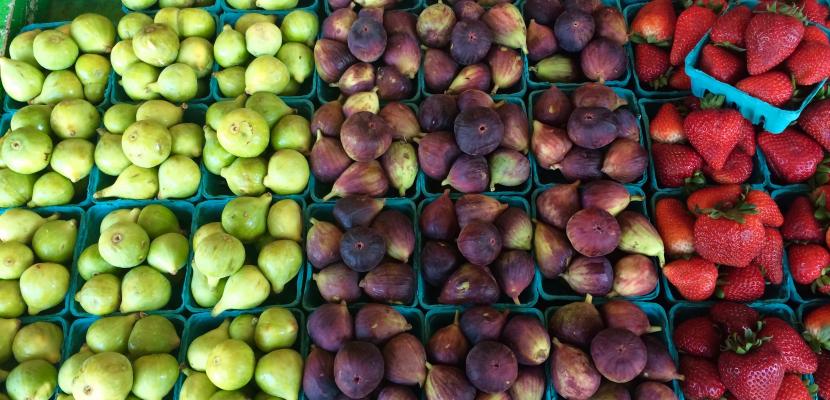Image

Local Food Waste Hub
Published on 15 December 2020

Italy
Lombardia
This is the good practice's implementation level. It can be national, regional or local.
About this good practice
The reduction of food waste is one of the priorities of the Milan Food Policy and it is developed through the involvement of different local actors such as research centres, institutions, the private sector, foundations and social actors.
To translate this priority into concrete actions, in 2016 the Municipality of Milan built the Local Food Waste Hub project together with other actors in the city, with the aim of reducing food waste and innovating the methods of recovery of food to be destinated to the most vulnerable groups. Designing and testing of a model for recovering and redistributing food surpluses is based on local neighbourhood networks. The model is now ongoing and the first hub in district 9 is working and a new hub in district 3 will open soon. Other hubs will be identified in the following months.
Actors involved: Municipality of Milan, the Milan Politecnico, Assolombarda, Banco Alimentare della Lombardia, the Program QuBì - the recipe against child poverty.
All kind of food can be collected and stored in the hub (fresh and ready-made, packaged). The food from Supermarkets is collected in the morning by Banco Alimentare and stored in the hub. Afterwards the food is prepared and donated: local charities and no-profit organization go to the hub to collect packages for the most vulnerable groups living in the neighbourhood. In the afternoon charities can also collect food from private companies’ canteens and distribute it to their users.
To translate this priority into concrete actions, in 2016 the Municipality of Milan built the Local Food Waste Hub project together with other actors in the city, with the aim of reducing food waste and innovating the methods of recovery of food to be destinated to the most vulnerable groups. Designing and testing of a model for recovering and redistributing food surpluses is based on local neighbourhood networks. The model is now ongoing and the first hub in district 9 is working and a new hub in district 3 will open soon. Other hubs will be identified in the following months.
Actors involved: Municipality of Milan, the Milan Politecnico, Assolombarda, Banco Alimentare della Lombardia, the Program QuBì - the recipe against child poverty.
All kind of food can be collected and stored in the hub (fresh and ready-made, packaged). The food from Supermarkets is collected in the morning by Banco Alimentare and stored in the hub. Afterwards the food is prepared and donated: local charities and no-profit organization go to the hub to collect packages for the most vulnerable groups living in the neighbourhood. In the afternoon charities can also collect food from private companies’ canteens and distribute it to their users.
Resources needed
Depending on the place/site identified for the hub there can be costs of renovation and there are some running costs for the operation of the activity.
In general, one person is needed to run the hub and another person is needed to monitor the process. The municipality coordinates the process.
In general, one person is needed to run the hub and another person is needed to monitor the process. The municipality coordinates the process.
Evidence of success
The practice is successful as it gave the following results: 77 tons of food saved and donated, for 154,000 equivalent meals recovered; 21 no-profit organizations involved; 11 supermarkets and 5 company canteens.
Ready to take off a new Hub in district 3.
The project showed that collection of food at very local level is possible and it works well with local charities and no-profit organizations.
Ready to take off a new Hub in district 3.
The project showed that collection of food at very local level is possible and it works well with local charities and no-profit organizations.
Potential for learning or transfer
This practice can be easily tested in other context as probably most of the actors are present in all EU countries and their knowledge can be replicated.
In this case the Municipality of Milan, the social actors Banco Alimentare and Programma QuBi/Cariplo Foundation, universities and private companies are cooperating in many situations and this activity has been a good attempt to cope with the food waste problem at local level.
In this practice, the Municipality took the lead and related the activity to the local Food Policy in order to connect this action to all other priorities and activities. The existence of a Food Policy has helped in the creation of a strong network and trustiness for citizens.
The technical aspects can be easily overcome with a strong coordination and process monitoring.
In this case the Municipality of Milan, the social actors Banco Alimentare and Programma QuBi/Cariplo Foundation, universities and private companies are cooperating in many situations and this activity has been a good attempt to cope with the food waste problem at local level.
In this practice, the Municipality took the lead and related the activity to the local Food Policy in order to connect this action to all other priorities and activities. The existence of a Food Policy has helped in the creation of a strong network and trustiness for citizens.
The technical aspects can be easily overcome with a strong coordination and process monitoring.
Further information
Website
Good practice owner
You can contact the good practice owner below for more detailed information.
Organisation
Municipality of Milan

Italy
Lombardia
Contact
Eu project manager